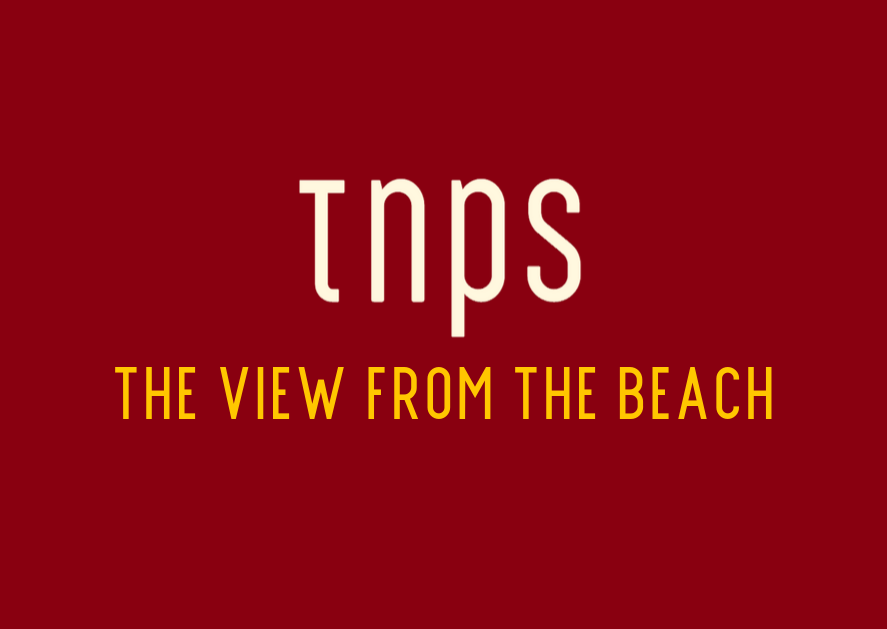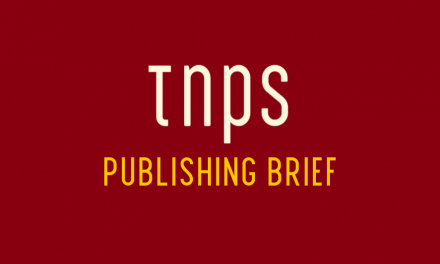The biggest reason bricks & mortar bookstores have to expect the continued backing of publishers is not because they are indispensable – 2020 destroyed that fantasy forever – but because they are the publishing industry’s biggest bulwark against Amazon totally dominating the western industry’s consumer interface.
Yes, this is another redux story evolving at TNPS as the 2020 chickens come home to roost for the UK publishing industry and new realties are finally being faced head–on.
Hard to imagine now, more than six months after the pandemic first brought Europe to a standstill, but back in March publishers were running about like headless chickens as it became clear bricks & mortar bookstores were not going to be given special status amid lockdown.
That was TNPS back in October 2020. The report went on,
Amid talk of layoffs, furloughs, delayed releases, publisher bankruptcies and an array of other the-sky-is-falling hysteria predictions, few were willing to think the unthinkable – that wonderful as bookstore are, maybe they weren’t indispensable after all.
Then realities started to kick in. While bookstores struggled for survival, publishers were mostly buoyant. Consumers didn’t abandon books. They just found alternative consumer-points.
While that was October 2020, I was a lone voice saying much the same thing way back in April 2020 just as the first UK lockdown was beginning to bite.
I said at the time:
The longer the pandemic crisis continues, the longer time for dedicated print readers to migrate to digital, even as print-based stakeholders like booksellers struggle to survive. Many will stay hybrid readers or even transition fully to digital afterwards.
To be clear, there’s no suggestion this will be an extinction-event for print – but when this is over and we return to whatever the new normal may be, digital books will play a far larger part in the lives of consumers and publishers than we could ever have imagined as this new decade began just a few short months ago.
Porter Anderson described the commentary as “cogent” and ran the quote briefly in Publishing Perspectives. I say briefly because he ran the quote wrongly believing someone else said it. When he realised it was a TNPS commentary he literally deleted it. You couldn’t make it up.
Other English-language trade journals similarly were preferring to look the other way as the new reality set in. The future of bricks and mortar bookstores was not a topic for rationale debate, and some editors were twisting themselves into pretzels trying to avoid facing the reality unfolding.
Philip Jones at The Bookseller even called for publishers to remove links to Amazon, as if this would somehow save shuttered bricks and mortar stores.
As I said at the time,
Take down the Amazon links? Seriously, Phil, that’s not going to happen, and for most authors and publishers it would be senseless to even think about.
Business is a constant act of pragmatism and compromise. Principled stands are for editors.
At which point a quote from TNPS that same month:
But the real problem … is the fact that publishers are doing so well despite the bookstore lockdowns. A reminder Bloomsbury print sales rose 2% even with bookstores closed. Online sales carries the day for print. And then there’s digital up 57%. And all importantly profits up 60%.
As other publishers seeing similar trends examine their balance sheets and do the maths… The clear and present danger is that publishers will begin to question the very reason why they treat high street bookstores with such reverence, and ask if maybe bookstores are not indispensable after all.
For bricks & mortar booksellers that emerge from the pandemic in one piece perhaps the biggest battle is still to come. Because the pandemic has shown publishers they can not just survive with fewer high street outlets, but that they can thrive with fewer high street outlets.
The evidence just kept rolling in.
Among the English-language publishing trade journals the idea that bookstores might in fact not be as indispensable as we once taken as gospel has been slow to gain momentum, but we are fast reaching the tipping point where reality has to kick in.
Throughout the second half of 2020 we saw the problem brewing. First, publishers and booksellers alike faced Armageddon as we entered lockdown in spring 2020. Publishers and booksellers alike screamed that bookstores were essential and civilisation would collapse before our eyes if bookstores were not given the special exalted status they so richly deserved.
After all, a printed book sold through a bricks & mortar store is something oh so special, and the exact same paper and ink book sold online, or in digital format, was somehow an inferior beast that had no place in a civilised country.
The problem being, consumers didn’t see things that way.
Hachette UK reported “vigorous” growth in ebooks and audio, alongside online print sales that together gave Hachette UK its “strongest year ever”.
That will be 2020, the year of the pandemic that saw bricks & mortar bookstores closed for much of the year.
US-based Simon & Schuster meanwhile reported record revenues in 2020, up almost 11% on 2019, again against a background of lockdown and bookstore closures. While in the UK digital formats accounted for 28.5% of Simon & Schuster sales, with S&S UK reported to be “firing on all cylinders“.
As I said in February,
In the UK bookstores remain closed, and won’t open before April. Yet we don’t see publishers panicking – or even showing slight signs of concern. And that should be worrying bookstore owners and all the businesses that depend on them.
Bricks & mortar bookstores face an uphill struggle this year to demonstrate to publishers that they are still as indispensable as they once were.
Let me end with this quote from Philip Jones in an op-ed in this week’s The Bookseller, which shows how far reality has (finally) set in:
8% is the increase in the value of the book market last week, according to Nielsen, when compared to the equivalent week in 2020, meaning that more books were sold in a week when high street bookshops were closed than in a past week when they were open.
Of course, year-on-year comparisons can be fraught with error—mid-March 2020 was an unusually flat time for books, as readers turned to the news for a sense of what was to come, but even measured against 2019 there is an uplift of 5%. It is, too, hardly news that the market has been surging since lockdown.
High street bookshops, along with retail in general, are facing an existential challenge.
Welcome to the real world, Phil.
Of course, that doesn’t mean high street bookstores are doomed.
But it does mean high street bookstores need to reinvent themselves to prove their value, not just to consumers, but to the publishers who during 2020 came to the unthinkable realisation that, actually, they don’t need bookstores after all.
Maybe if more bookstores and their supporters and guardians had addressed this reality as it was unfolding – and debated here at TNPS – through 2020, instead of waking up to the reality in March 2021, they would be in a stronger position now to fight their corner.
As it is, the biggest reason bricks and mortar bookstores have to expect the continued backing of publishers is not because they are indispensable – 2020 destroyed that fantasy forever – but because they are the publishing industry’s biggest bulwark against Amazon totally dominating the western industry’s consumer interface.





